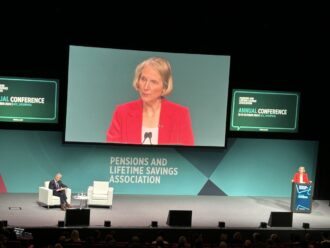Inflation has risen at its fastest rate on record, but Andrew Holt is not getting carried away.
One headline in September seemingly summed up the latest worrying inflation trend: ‘Inflation rises at the fastest rate on record’.
Given the concern and debate surrounding inflation, this takes the situation to a new, truly shocking level. Except, when you realise that the current measure for UK inflation – the Consumer Price Index (CPI), which calculates the average price increase as a percentage based on a basket of goods and services – was only introduced in 1997.
So, we are only looking at a period covering 24 years, which makes CPI younger than the English Premier League, which kicked off in 1992. Hardly a basis to make historical assertions about inflation.
And when it comes to measuring things that matter, measuring the weather has a far longer history. When you hear the weather is the worst since records began, that is a proper timeframe – dating back to 1850.
So, all the talk of ‘record’ inflation should be taken with a pinch of salt.
Temporary factors
On the rise itself, yes, prices did jump 3.2% in the 12 months to August. But it hardly amounts to a 1973 scenario when inflation was running at 20%.
And much of the rise can be attributed to temporary factors, all connected to Covid in some way. The government’s Eat Out to Help Out scheme last summer and a temporary VAT cut for the leisure and hospitality sectors can be seen in the current rise.
And there are other sectors that suggest a temporary Covid-inspired fillip. For example, for the modern-day Arthur Daley these are good days. Second-hand cars since the pandemic began contributed to a higher-than-expected inflation rise. The Office for National Statistics revealed prices for used cars have increased 18.4% since April this year. Hardly a basis for investors to start adjusting their portfolios.
An interesting development here is also the shortage of semi-conductor chips caused by suppliers prioritising selling their goods to mobile phone and computer manufacturers due to the higher profits, than say to car manufacturers. This has, in turn, slowed car production. So, a lack of new cars has driven consumers into second-hand alternatives.
In addition, prices for commodities have risen in recent months, driven by demand for goods and for those goods with supply chain issues due to ongoing Covid disruption. Although, as portfolio institutional has covered previously, the commodities picture is a complex one, with arguments for and against a commodities supercycle.
Banking on a rise
There are reasons to be cautious about the inflationary environment but panicking at this stage that inflation is rising at a ‘record rate’ should not be one of them. The picture is a more complex one.
The Bank of England has warned that the picture is one in which rates could rise faster than expected as soaring energy costs and supply chain chaos mean inflation will climb above 4% by the end of the year – which could be said to stretch the transitory view somewhat.
In addition, the Confederation of British Industry (CBI) has said labour shortages will be an inflation driver if they do not come hand in hand with an increase in output.
But again, the reasons for these rises – energy and supply chain problems – are legacies from the Covid pandemic and should not continue forever.
Yet, not all inflation we can see now is because of these problems, which is why it makes the situation difficult to fully analyse. Naturally, it is an issue that investors need to keep a warning eye on. In this way, it is an issue asset owners are tracking closely.
“It is a big concern for our partner funds because they have inflation-linked liabilities, so by default, it is a concern for us. So, I have been highlighting it for the last year,” said Daniel Booth, chief investment officer at Border to Coast.
What is clear therefore, is that inflation is not just a monetary phenomenon, as Milton Friedman asserted, but also a political and economic one.
And a potential, more opaque, challenge exists. One commentator made the interesting point that most financial market professionals today have never experienced high inflation, let alone invested in such an environment, raising questions about whether they will deal with the situation correctly.
Could this prove a problem? Like inflation itself, we will soon find out.




